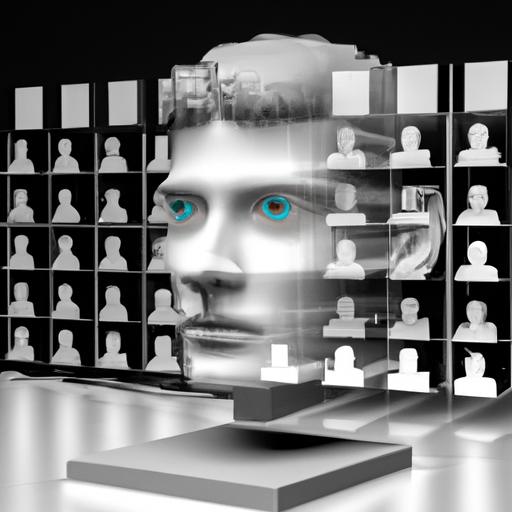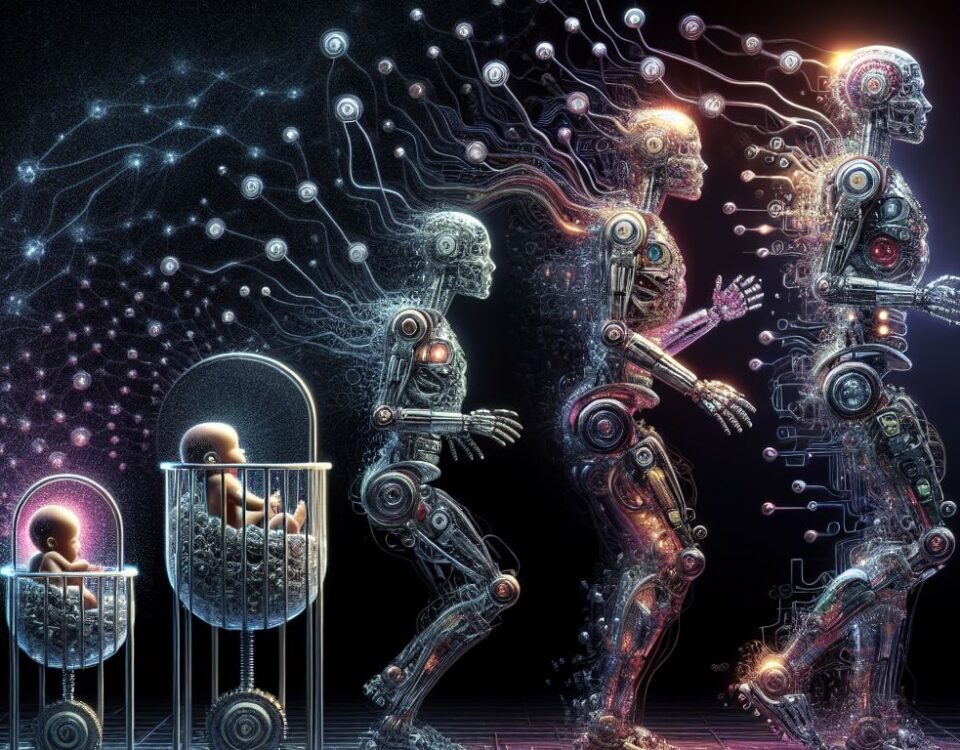
The AI Magic Wand: Revolutionizing Customer Engagement Through Advanced Algorithms
May 9, 2023
The New Frontier: Discover How AI is Accelerating the Creation of Hyper-Personalized Content
May 11, 2023
Artificial Intelligence Outsmarts Humans: Will AI-Driven Marketing Eliminate Jobs?
The age of artificial intelligence is upon us, and it’s impossible to deny its impact on daily life – from virtual assistants to self-driving cars, AI is changing the face of technology as we know it. Perhaps one of the most controversial questions surrounding AI is its effects on the job market, specifically in the field of marketing. The automation of marketing tasks through AI has many business owners jumping for joy, but with that leap of joy comes a looming sense of uncertainty for those in the marketing profession: will AI eventually make their jobs obsolete?
To answer this question, we must first delve into an understanding of how AI is utilized in the realm of marketing. On one hand, AI-driven marketing has proven to be a game-changer, providing more accurate analysis of data, optimizing targeting efforts, and predicting customers’ preferences and behavior with astounding accuracy. These capabilities enable marketers to create personalized experiences for their target audience while also managing advertising budgets more effectively.
For instance, AI-powered algorithms can process vast amounts of consumer data to decipher patterns and trends, allowing marketers to strategize the best course of action for their next campaign. Automated email marketing tools, CRM systems, and ad placement services all harness AI’s power to make marketing more efficient and effective. Musicians like David Bowie, who have churned out entire albums using AI-assisted software, are also experiencing the benefits of these advancements. The upshot is vast improvements in a range of marketing processes, from lead generation to email open rates, all enabled by the integration of AI.
But what does this mean for those in marketing roles who may feel threatened by the rise of the machines?
Sure, parts of the marketing process that involve mundane or repetitive tasks such as email automation, media cataloging, and ad bidding can be handed over to AI-powered systems to do the heavy lifting. This helps eliminate human error, and as a result, improves the effectiveness of the campaigns. In fact, some experts believe that automation and AI are bound to reduce human cognitive load, which in turn can boost creativity among employees.
However, true marketing success isn’t solely driven by data and precision. Contrary to popular belief, marketing is a profession that requires a distinctively human touch to be genuinely effective. While AI can quickly process data and efficiently manage campaigns, it is the human element that is indispensable when it comes to tackling matters like emotions, empathetic understanding, and consumer motivation.
AI-driven marketing tools may be incredible workhorses, streamlining the management of ads and promotional content, but they still won’t replace the human ability to think on a higher plane where creativity, strategy, and empathy are required. The reason for this is simple: marketing is storytelling – a form of communication that utilizes shared experiences, emotions, and the art of persuasion to connect with an audience. And these aspects, at least for now, are firmly rooted in the realm of human expertise.
Take the famous Don Draper from the hit television show Mad Men. Would an AI-driven algorithm ever be able to concoct the same heartstrings-pulling ad campaign that Draper presented to Kodak? It’s hard to imagine that any machine, no matter how advanced its current understanding of emotions, could replace such a compelling, deeply human component of marketing.
In essence, just as with any technological revolution before this one, AI will undoubtedly displace some jobs in the marketing field. However, it will also create new opportunities in areas that call for analytical or technical acumen, allowing marketers to take on roles as AI or data analysts, marketing technology specialists, or even AI trainers.
The AI revolution in marketing presents both challenges and possibilities; the key lies in adapting to this brave new world. Rather than fearing AI as a threat, marketing professionals should embrace this technology as a tool to enhance their own skills and boost creativity. In the end, what AI cannot replace is the uniquely human ability to connect, engage, and create meaningful relationships with other humans – and that’s the essence of effective marketing.
Get the power of AI for your marketing campaigns
Simplify campaign management and maximize results with AdMind. Create high quality content, generate images, integrate digital channels, automatize editorial plans, track performance, and optimize for maximum success.
More AI-Marketing News
Subscribe to unlock the power of AI-driven content marketing and to get free stuff!
I read and accept the Privacy Policy.






